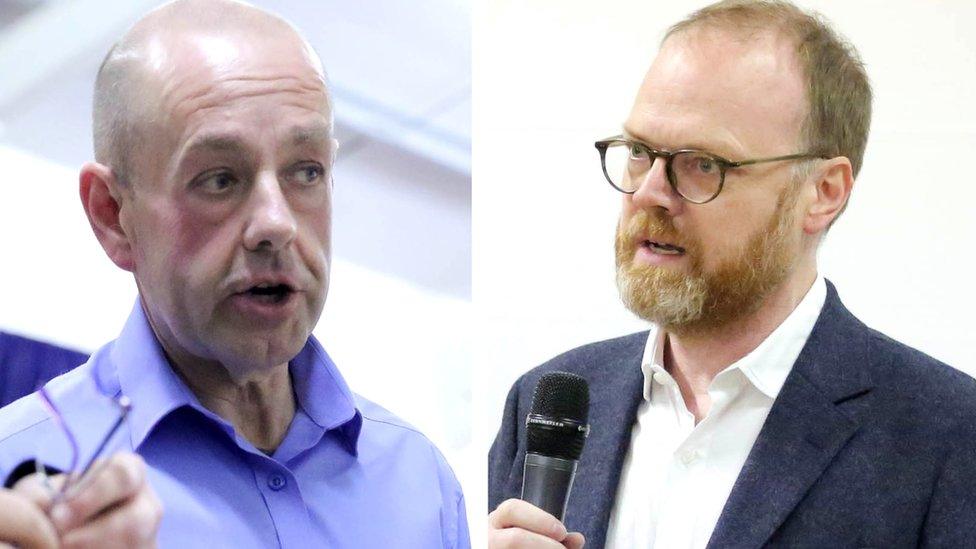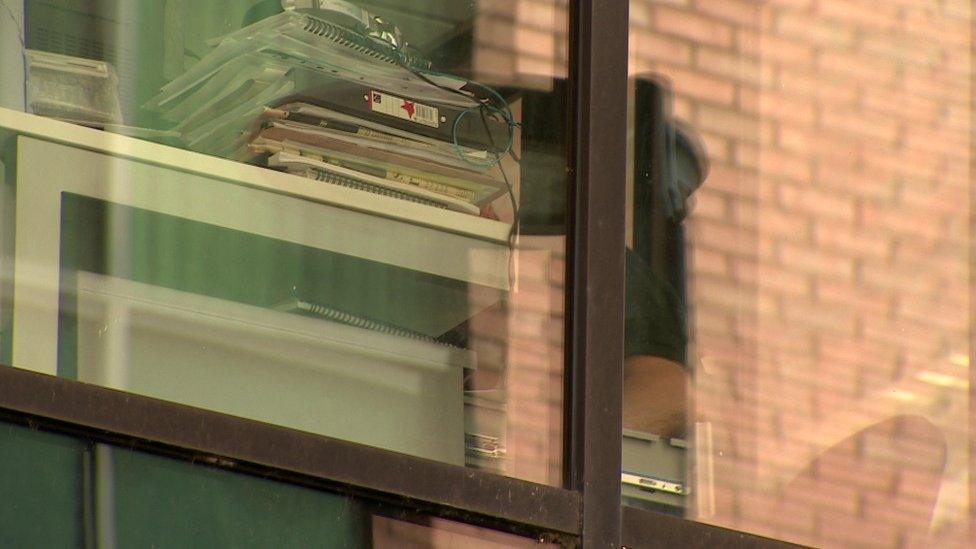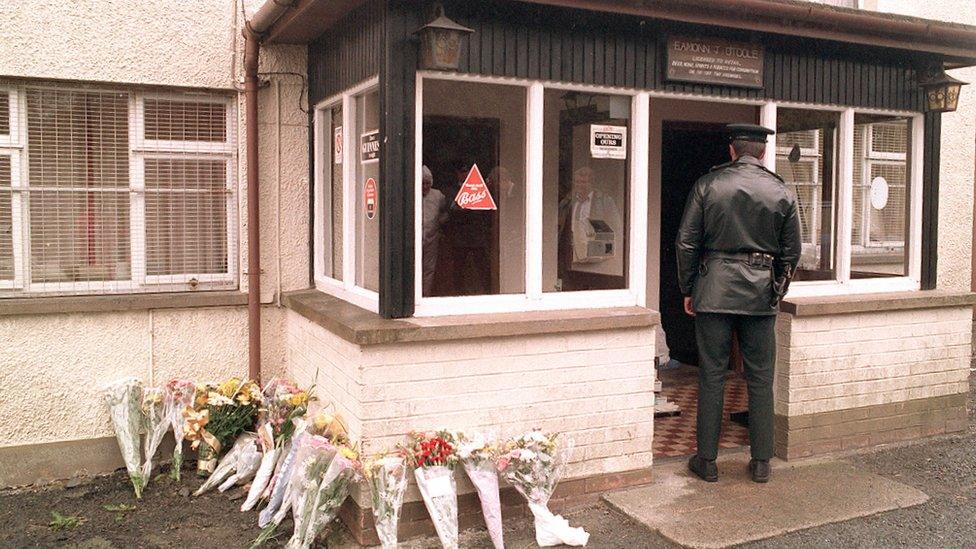Loughinisland: Journalists arrested over documents investigation
- Published

Journalists Barry McCaffrey and Trevor Birney were arrested on Friday morning
Two journalists have been arrested as part of an investigation into the suspected theft of confidential documents from the Police Ombudsman for Northern Ireland (PONI).
Trevor Birney and Barry McCaffrey produced the documentary No Stone Unturned about the murder of six men at Loughinisland in County Down.
The documents relate to a police investigation into the 1994 murders.
The two were arrested on Friday morning and released that evening.
PONI officers reported the suspected theft to the police.

Police officers searched the offices of the film production company Below The Radar
The Police Service of Northern Ireland (PSNI) asked Durham Constabulary to conduct an independent investigation.
The inquiry centres on the suspected theft of sensitive material, which was used in the No Stone Unturned documentary.
Detectives from Durham Constabulary, supported by PSNI officers, searched two homes and a business premises in Belfast on Friday morning.
They seized documents and computer equipment during the searches.
But the material will not be examined by police until the outcome of a legal challenge by the company that produced the film.
'Complex investigation'
Lawyers for Fine Point Films brought emergency proceedings to Belfast High Court on Friday, challenging the legality of the search warrant used by police.
After discussions between the lawyers and police, the court was told that detectives were prepared to give an undertaking not to examine any of the material until the court had made a further order.

The attack in Loughinisland took place in June 1994 at the Heights Bar
A Durham Constabulary spokesman said the arrests were a "significant development in what has been a complex investigation".
"The terms of reference given to our inquiry were clear in that the investigation is solely into the alleged theft of material from PONI," he added.
"The theft of these documents potentially puts lives at risk and we will follow the evidence wherever it leads us."
Fine Point Films said it would not comment until the "process is concluded".
Filmmaker Alex Gibney, who directed No Stone Unturned, tweeted that the men had been arrested for "good, hard-hitting journalism".
Allow X content?
This article contains content provided by X. We ask for your permission before anything is loaded, as they may be using cookies and other technologies. You may want to read X’s cookie policy, external and privacy policy, external before accepting. To view this content choose ‘accept and continue’.
In June 1994, loyalist gunmen burst into the Heights Bar in Loughinisland and killed six people, wounding five others.
Clare Rogan, who lost her husband in the attack, said the victims' families were "shocked and appalled" by the arrests.
"These actions are the latest attempt to deter the work of families and journalists who seek to shine the light on the dark levels of collusion at the heart of the British state," she added.
'Grave concern'
Amnesty International's Patrick Corrigan said he was "deeply concerned" about the arrests of the journalists, adding that it could have a "chilling effect on legitimate investigative reporting".
"Few subjects could be of more significant public concern than the mass shooting of civilians and the alleged collusion of the police in assisting those responsible to evade justice," said Mr Corrigan.
The National Union of Journalists (NUJ) said it had "grave concern" about the arrests.
Reporters must be "free to operate in the public interest without police interference," said the union's acting general secretary Seamus Dooley.
"The protection of journalistic sources of confidential information is of vital importance.
"These journalists are entitled to claim journalistic privilege and to seek the protection of the legal system if there is any attempt to force them to reveal sources."